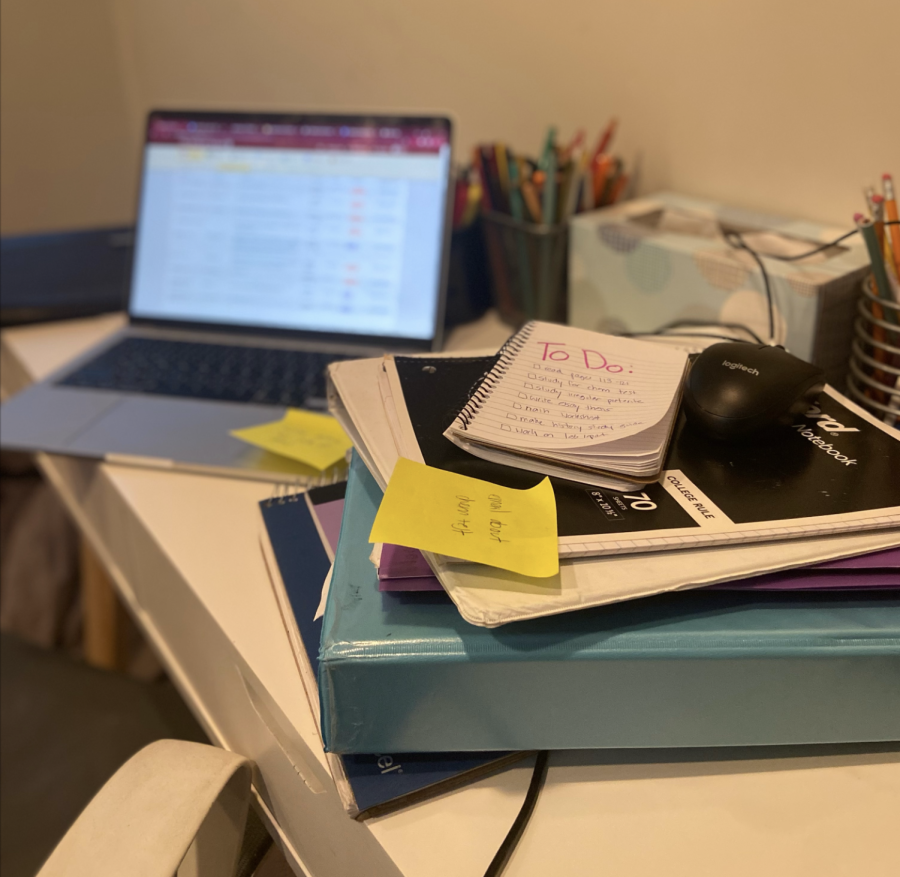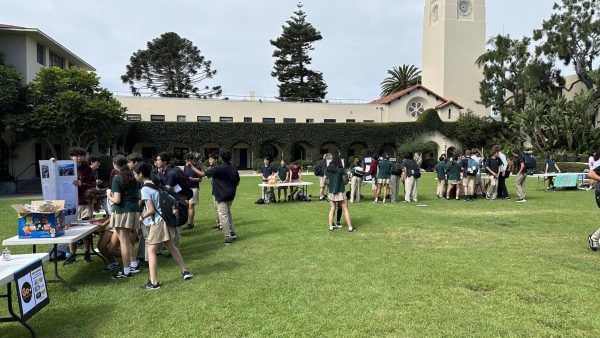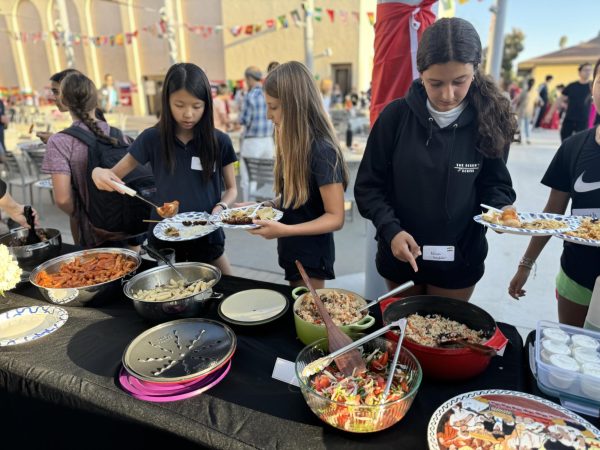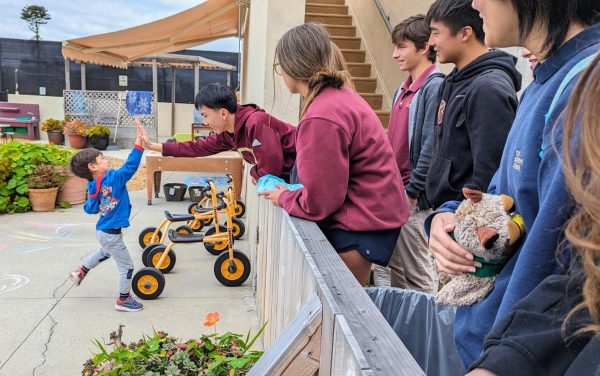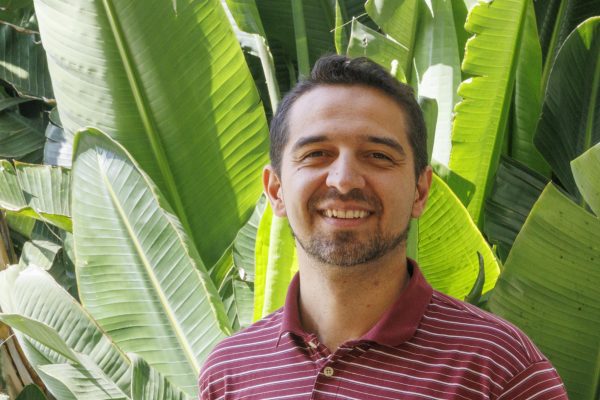Homework in Sickness and in Health
How students catch up after missing school
Due to an overwhelming amount of assignments, students who have missed school often deal with making up work for days and even weeks after their original absences. In regards to whether she would be caught up by Thanksgiving break, Niamh Malhotra (‘23 ) — who got sick a couple days after Halloween — simply said, “I hope so.”
Empty tissue boxes, students wrapped in blankets, stuffy noses, and an inordinate amount of coughing are scenes everyone at Bishop’s has been all too familiar with recently. With a record-breaking number of students missing school, Head of Attendance and Health Services Ms. Eva Flores explained, “The usual number of sick students is 10, at most 15, per day.” She added, however, that “on Tuesday [November 8] we had a total of 76 students absent.” Out of a total of 818 students, that means about 9% of the student body was missing November 8, compared to the standard 1%.
Inevitably, this increase in sickness plagues Bishop’s students with a question. Do I come to school even though I’m feeling sick?
Students must weigh the consequences of putting others at risk and coming to school while unwell, with the consequences of missing valuable — often irreplaceable — class time. For better or for worse, students often decide to take the risk of attending school, in fear of getting too far behind on their work.
“A lot of people don’t feel like they have a choice,” explained Niamh Malhotra (‘23), who, due to feeling extremely under the weather, was forced to miss four days of school the week of November 7. Audrey An (‘23) and Riley Brunson (‘25) — who both also missed school — echoed this sentiment. Riley said, “I just needed to prioritize getting caught up even if I was still not feeling a hundred percent.” Audrey expanded further on this idea. “People have said, ‘If I’m able to still function and go to school, I don’t really care how sick I am. I’m still going to go because making up work is a nightmare.’”
Even weeks after their original absences, many students still struggle with getting back on track. The last night before Thanksgiving break — nine days after her absences — Riley recounted, “I pulled an all-nighter to finish my history paper and ended up only getting about 30 minutes of sleep.” Niamh said, “I’m still not caught up in the slightest.”
Community members shed some light on what exactly makes missing class so hard at Bishop’s. Lily Gover (‘24), who missed about a week of school due to sickness, explained, “Honors classes go through the materials so fast that it’s just really hard to catch up.” Audrey similarly said, “A lot of Bishop’s classes — I love this about them, but I also hate it — they always build on top of each other.” She added, “That’s the hardest part because there’s no easing back into it.”
Director of Counseling Ms. Megan Broderick also explained, “You have to learn new stuff while you’re also trying to catch up. And I think that that is just overwhelming.” Mathematics and Computer Science Teacher Ms. Dominique Voso felt similarly. Though she doesn’t want students to come to school while ill, she also said, “It’s honestly more work to be out from school than it is to just show up sick.”
Riley added that some teachers “somewhat understood that I was sick, but they still continued to pile on stuff.” However, Science Teacher Dr. Lani Keller spoke of the struggle from the teachers’ sides. “We are all doing our best right now — trying to figure out the best way to support our students while ensuring that students are learning in the process.”
Dr. Keller also shed some light on her specific makeup policy: “During COVID I ‘flipped’ my classroom, which means that all the content delivery is given in assigned screencasts as homework, freeing up time in class to answer questions and play with the material.” Ms. Voso spoke of her approach as well, and explained that “any tests or quizzes missed should be made up within the first few days of returning.”
Some teachers instead talked about their policies being on a more “case-by-case basis” — as English Teacher Adam Davis explained. In the words of Dean of Faculty and former science teacher, Mr. Ben Heldt, “not every student will need the same amount, or type, of help.” English teacher Mr. Davis also added that though he’s always willing to work on extensions, “The nature of the extension depends on the nature of the absence.”
Because of the stress surrounding making up assignments, many students end up doing work while they’re under the weather. Niamh said, “I tried to do work while I was sick because I didn’t have a choice for some classes… you’d just be too far behind.” Naturally, she also mentioned that trying to complete assignments while under the weather “never really went well.”
Lily had a similar experience to Niamh. She explained, “it was just really hard for me to work while I was trying to recover.” In regards to students facing mental health issues due to sickness, both Ms. Broderick and School Counselor Ms. Lauren Gray “think it’s a real problem” at Bishop’s.
The academic rigor and competitiveness at Bishop’s also adds another layer of difficulty. Riley said, “When you get into high school and you’re taking all these Honors classes, it’s just really hard to stay afloat academically.” Ms. Gray echoed this sentiment, saying there’s “this competitive nature…[that] create[s] a culture where it’s not okay to take a day off if you’re sick.”
On the other hand, it is always important to think of the health side of things. School Nurse Ms. Susie Fournier explained, “There might be a student sitting next to you who has a younger sibling more at risk to develop …breathing complications from RSV and get really sick and possibly hospitalized.” She added, “And a person sitting on the other side of you might be living with a grandparent or somebody who’s going through chemotherapy.” Overall, she summarized, “Try to be sensitive and helpful to your classmates and teachers and make sure that everyone feels comfortable and safe.”
Many students at Bishop’s try to make a conscious effort to avoid spreading germs. Riley wore a mask to school, and Niamh made sure not to come back until she knew she was not contagious. Audrey said outright, “Don’t go to school if you’re sick.” And through her frustration, Lily said she “understands where all the teachers are coming from.”
Still, the academic culture at Bishop’s and across high schools often makes it a difficult decision. Nurse Fournier explained, “We want kids to stay home when they’re sick. We know it’s really hard. Sometimes you can’t replace class time or lab time or a lecture. That’s when it’s really important to communicate with your teacher and come up with a plan.”
Many students feel like missing school would compromise their academic standing. Riley expressed frustration with teachers telling students to not come to school. “Our teachers will say, ‘You need to go home’…but I can’t. I can’t leave. I’ve already missed two days and I need to get caught up.”
Ultimately, deciding how and when to make up work is not an easy decision for anyone — teachers or students. But as Lily put it, “I had so much to do and I’d miss[ed] so much that…I just had to come.” Keeping yourself and those around you safe and healthy is always critical. But on the other hand, demanding classes and busy schedules mean going to every single class can also be critical. It is a difficult balance to tread for students, and the decision is never easy to make.
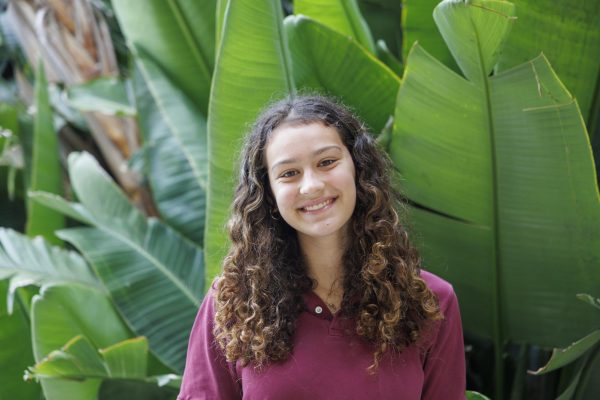
Nora Bitar is a senior and the Managing Editor for The Tower. Her favorite type of articles to write are music reviews — which she can’t wait to do...


